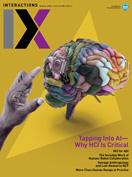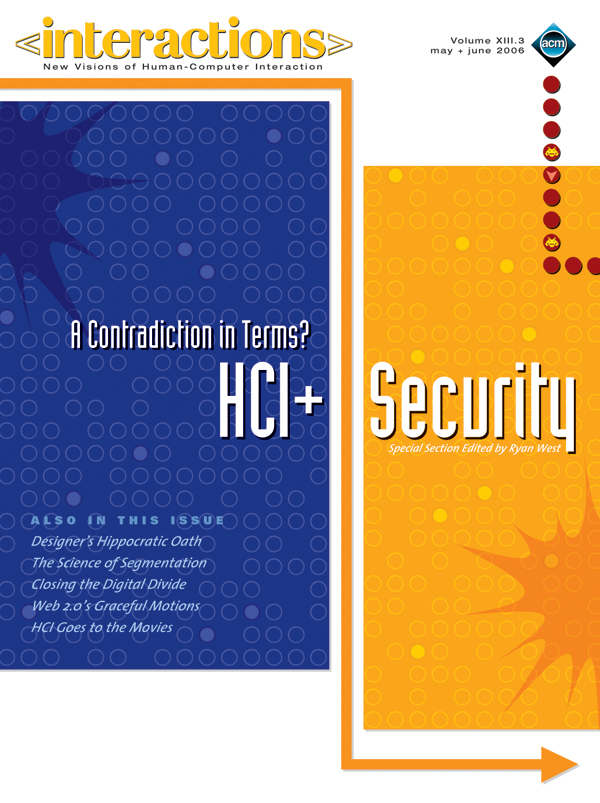Authors:
Morten Hertzum
Passwords are a widely used mechanism for user authentication and are thus critical to the security of many systems. To provide effective security, passwords should be known to the password holder but remain unknown to everybody else. While personal information and real words are relatively easy for a user to remember, they make weak passwords from a security point of view because they are vulnerable to informed guessing and dictionary attacks. Strong passwords (e.g., b5j#Kv!8N) are less vulnerable to attack but at the same time more difficult to remember. However, the sheer number of passwords people must have to…
You must be a member of SIGCHI, a subscriber to ACM's Digital Library, or an interactions subscriber to read the full text of this article.
GET ACCESS
Join ACM SIGCHIIn addition to all of the professional benefits of being a SIGCHI member, members get full access to interactions online content and receive the print version of the magazine bimonthly.
Subscribe to the ACM Digital Library
Get access to all interactions content online and the entire archive of ACM publications dating back to 1954. (Please check with your institution to see if it already has a subscription.)
Subscribe to interactions
Get full access to interactions online content and receive the print version of the magazine bimonthly.







Post Comment
No Comments Found